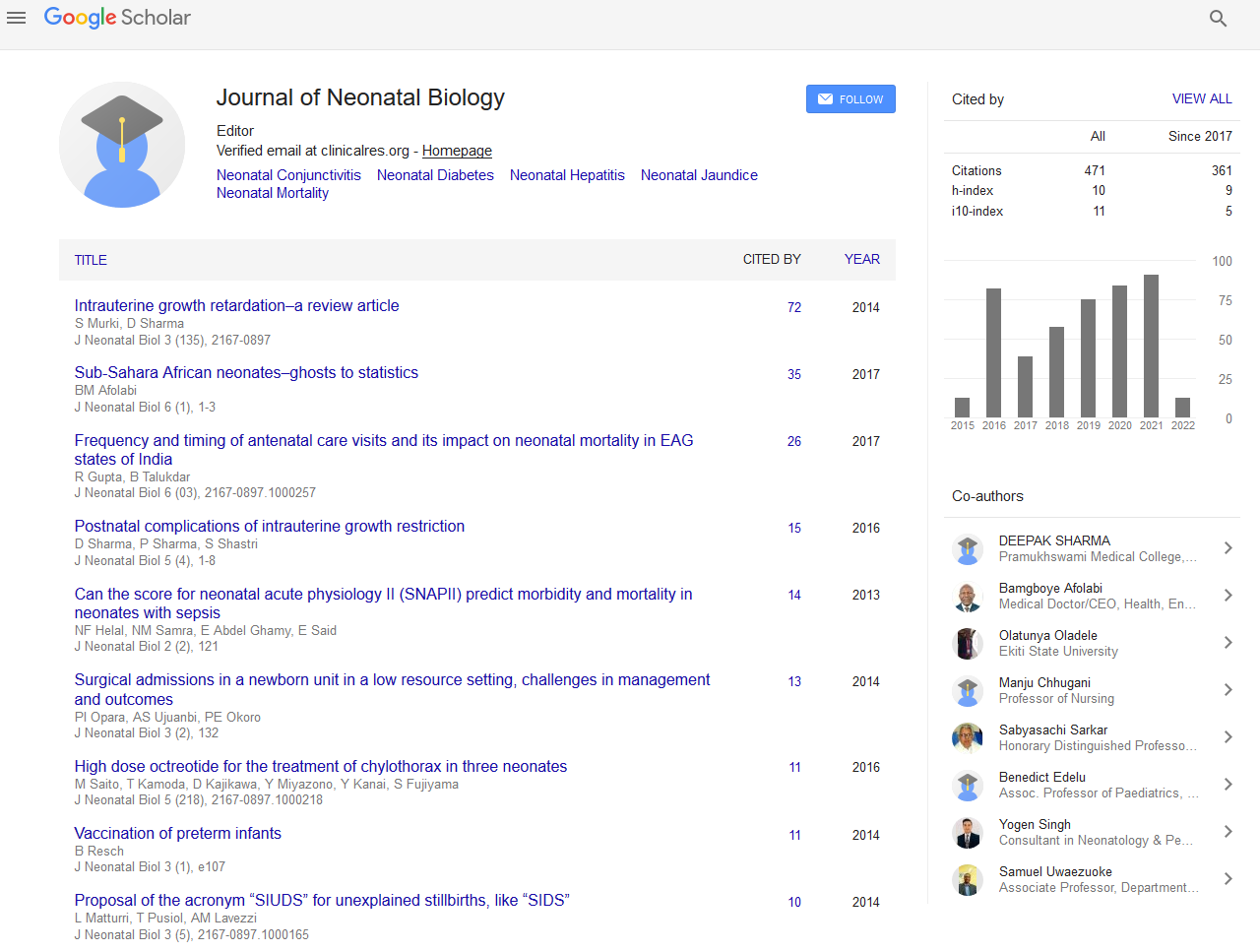PMC/PubMed Indexed Articles
Indexed In
- Genamics JournalSeek
- RefSeek
- Hamdard University
- EBSCO A-Z
- OCLC- WorldCat
- Publons
- Geneva Foundation for Medical Education and Research
- Euro Pub
- Google Scholar
Useful Links
Share This Page
Journal Flyer

Open Access Journals
- Agri and Aquaculture
- Biochemistry
- Bioinformatics & Systems Biology
- Business & Management
- Chemistry
- Clinical Sciences
- Engineering
- Food & Nutrition
- General Science
- Genetics & Molecular Biology
- Immunology & Microbiology
- Medical Sciences
- Neuroscience & Psychology
- Nursing & Health Care
- Pharmaceutical Sciences
Shared antenatal care to increase utilization of maternity services
20th International Conference on Neonatology and Perinatology
December 04-06, 2017 | Madrid, Spain
Etedafe P Gharoro and Igbafe A A
University of Benin Teaching Hospital, Nigeria
Posters & Accepted Abstracts: J Neonatal Biol
Abstract:
The objective of the study, now published, was to identify factors, which may have contributed to the decline in the utilisation of maternity services at the tertiary institution in Benin. The cross sectional study was undertaken at the antenatal units of the University of Benin Teaching Hospital (UBTH), Central Hospital Benin (CHB), Catholic Maternity Hospital (CMH) and the Anglican Women Hospital (AWH), between the months of June and September 1998. 1200 pregnant women at various gestational ages, attending the antenatal clinics were interviewed using a structured questionnaire. The mothers also responded to open-ended questions. The inquiry included personal data, place of domicile, information on previous and present antenatal booking and maternity service utilization. 950 adequately completed questionnaires were analyzed. All the patients attended the clinic from within the town. The catchment area for each of the maternity units was not clustered, nor showed any pattern of delineation by place of patients�?? domicile. Patients attended any antenatal clinic from various locations in town, indifferent of the distance or proximity to their residence. The reasons for not attending antenatal care in UBTH are multiple and in various combinations. A large number of the patients (71.47%) that have no previous delivery experience with UBTH, did not book with the centre because of the cost of services (19.89%), poor attention (27.37%) and distance from place of residence (24.21%). 23 patients (50.0%) of all the women that have delivered in UBTH complained of cost. 295 mothers (31.05%) were satisfied with their present centres and do not want a change. Included in this number that were satisfied are 12 (21.42%) women that have delivered previously in UBTH. Patients�?? satisfaction and aversion for obstetric interventions could be improved by shared antenatal care to increase utilisation of maternity services. We recommend the introduction of a midwife-managed care unit in the department, for the management of low-risk mothers.


